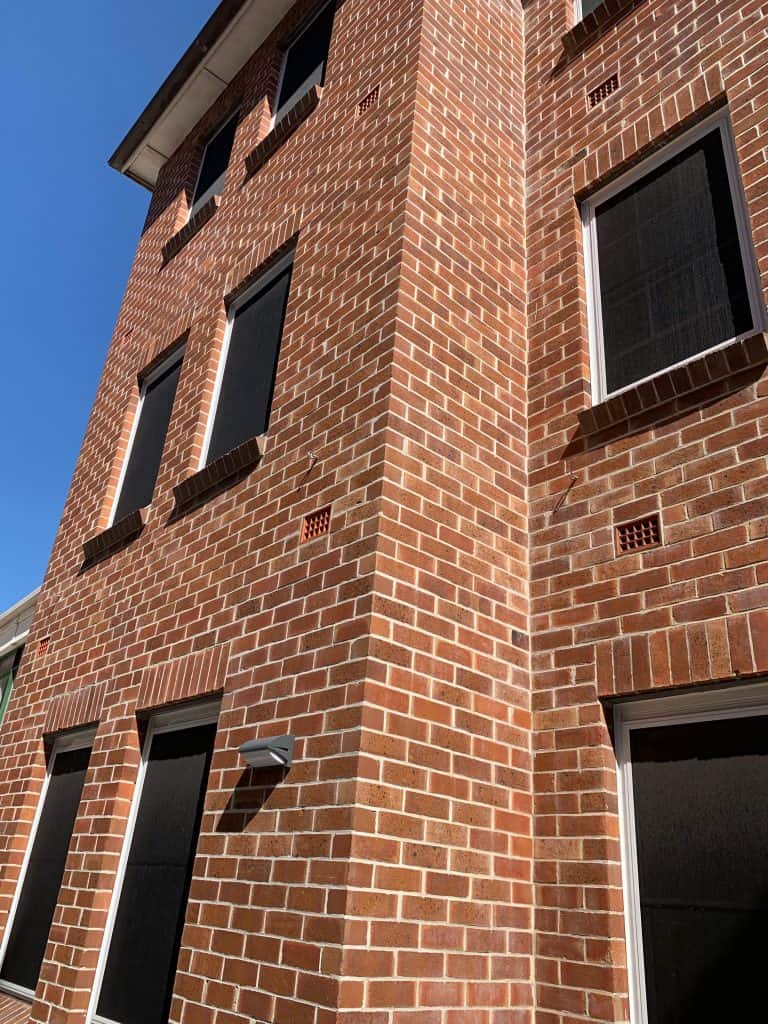Workability additives and mortar bond strength
Many bricklayers will use workability additives to “fatten up” the mortar mix, but what does this do to the mortar bond strength?

There appears to be a lot of confusion and misinformation in the building industry regarding mortar workability additives. Depending on who you ask, you will also often get a different answer.
Firstly, it depends on which type of mortar additive or plasticiser is in question.
They generally fall into two categories;
i). Air-entraining additives and
ii). Non air-entraining additives.
i). Air entraining plasticisers – are generally the most commonly used in Australia but unfortunately these can also cause the most problems if not used strictly in accordance with the manufacturer’s recommended dosage and instructions. Air entraining plasticisers add ‘air’ into the mix and this is why they can often make mortar seem easier to use for the bricklayer. However, studies (a). have shown that even a small amount of overdosing of air entraining plasticisers can produce significant reductions in mortar bond strength, which can quickly fall below the acceptable requirements and Australian Standards for Brickwork.
Reputable and commonly used brand name Air entraining mortar additives including Bycol, Brickies Own, Lanko 311 Bricklayer Plasticiser, all carry instruction labelling which contains the maximum recommended dosage of additive to the mix to retain mortar bond strengths within accepted levels.
Less reputable brands and other products such as dishwashing detergents and even soft drinks, beer and sugar are sometimes reportedly used on building sites. These carry no instructions on dosage rates and can result in weak and inferior mortar mixes. They may appear to help with workability of the mix, but can also result in huge reductions in mortar bond strength and possibly expensive repairs and demolition works for the bricklayer or builder if discovered.
ii). Non-air entraining mortar additives which include Lime, METCELL, Dynex and methyl-cellulose-type water thickeners SEE https://metcell.com.au are generally much safer to use to improve workability of mortars. This group of additives improves workability and can enhance the mortar properties, without a reduction in mortar bond strength.
The use of all mortar additives should be carefully controlled and monitored on site. The person responsible for mixing the mortar (usually the bricklayer’s labourer) should also be properly instructed and supervised to ensure that the quality of the mix is maintained throughout the project.
HERE is an excerpt from Australian Standard AS4773.2:2015 Masonry in small buildings. It is a great guide for getting your mortar mix right.
For further reading, the following reference and paper provides interesting and valuable information;
Contact us if you would like further information or if you would like to discuss your own building problem or project by Email or Telephone on 1300 234 450.

